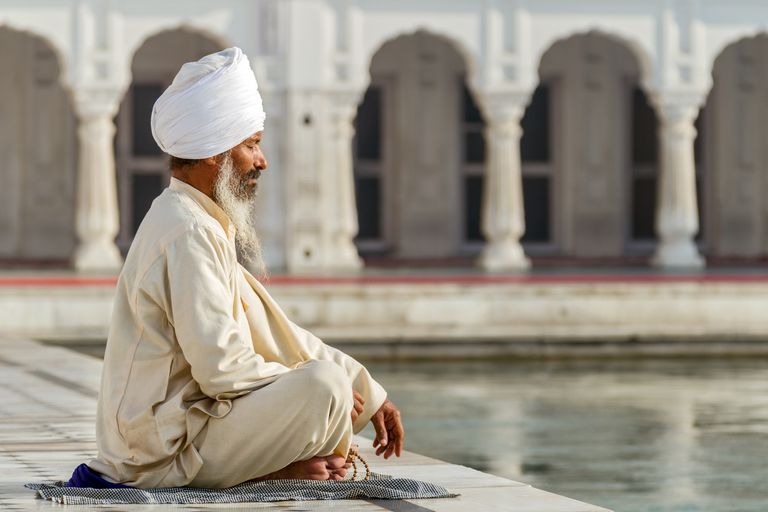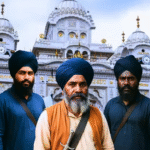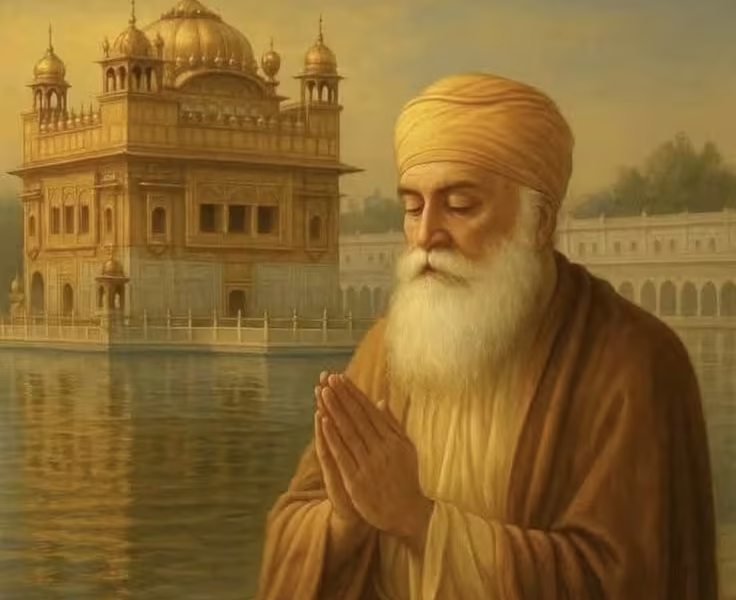Meditation is similar to a “oil filter” for the mind. Meditation, like an oil filter in a car catching dirt as the oil circulates, captures your mental debris and cleans your subconscious mind. This is how you get clarity, neutrality, and delight. It’s a fully automated procedure. Now most people assume meditation of Sikhs to be same as Buddhists but it isn’t as there are slight differences. Although, the goal of all the meditation is same. You smell bad if you don’t take a shower. Similarly, without meditation, your brain becomes clogged with “mental garbage,” which affects your behaviours, words, and overall well-being.
When the mind is focused and man speaks to Infinity, this is referred to as prayer. Meditation occurs when the mind is completely clear and receptive, and Eternity communicates with the individual. When you meditate, you will have an encounter wherein all of that rubbish begins to float through your brain. You’ll have something to cleanse once you’ve developed that release. If your psyche only communicates with you through hallucinations, nightmares, and daydreams, as well as fantasies, hypotheses, and projections, you will never be able to be yourself.
Mind is presented to you as a tool to assist you. It became your master, and you were reduced to a slave. When your brain becomes your dictator, it transforms into a monster. When your mind serves you, it is an angelic. It’s all a figment of your imagination.
When Should You Meditate?
You may meditate at any time, but the ideal time is early in the morning when you have that unique quiet time. For a purpose, the Amrit Vela in the early hours of the morning is termed such. When the sun rises, there are so many more interruptions, making meditation exceedingly difficult. Early hours hours, from 2.5 hours well before sun rises, are the quietest, and this is the best time to meditate and engage with your soul.
If you feel tired when you first get up, take a cold bath and relax your entire body. This isn’t just highly healthy, but it will also protect you from becoming ill.
Meditation is a technique for clearing the mind and not putting a lot of thoughts into your subconsciousness. You would feel cosy when your mind becomes silent and free of ideas, and that cosiness cannot be defined. It’s quite relaxing, and you’ll want to do it again and again. However, you will not be able to perform it for an extended period of time at first. This thought-hitting procedure gets progressively shorter as you establish that warmth. When you meditate on a routine basis, you will notice and feel far more advantages than if you only meditate once in a while.
Sikh’s meditation
According to Gurbani, a Sikh must read and chant the Lord’s glories, reflect on them, put them into practise, and become an incarnation of truth. Guru Nanak’s Naam Simran is a way of life centred on positive/pious ideas rather than mechanistic repetition in terms of achieving thoughtlessness, that is a yogic practise rather than Gurmat.
Gurbani instructs us to live in this manner. The divine pragmatic life of a Sikh is his contemplation. The Sikh faith’s beliefs encourage devotees to focus on God first thing every morning. Meditation, also known as naam jap or naam simran, is commonly practised while sitting on the ground, cross-legged.
Nitnem is a sequence of daily prayers that are read or performed while sitting quietly in the morning, evening, and nighttime. Sikhs, unlike Christians and buddhists, do not generally pray while bowing. Certain Sikhs use rosary beads, also known as a mala, to aid concentrate. Prolonged prayer can take the form of Sejh, Sidharan, or Akhand Paath, which involves reading the entire Guru Granth Sahib, the Sikh scripture, whether intermittently or continuously. While upright, a formal petition prayer known as Ardas is performed. Praise of God is the emphasis of prayer and meditation, which might take the form of humming, as in kirtan. Prayer and meditation, according to Sikhs, are vital for achieving good traits and conquering ego. Evey breath, according to Sikh scripture, is a great chance for prayer.








